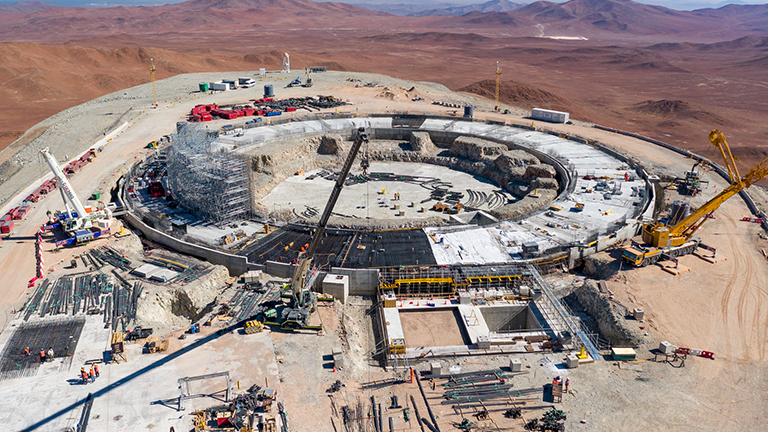An extensive Telescope guide
What is a Telescope?
Telescopes are instruments used to observe distant objects by gathering and focusing their light.
The word telescope was coined in the early 1600s, based on the Greek word for “far sighted” or “to see at a distance.” Telescopes work because they use lenses to collect and focus light from distant objects.
The basic design of a telescope consists of a long, narrow tube with one or more large lenses at one end, and an eyepiece at the other end. The size of the lens(es) determines how much light is collected—the larger the lens(es), the more light can be collected.

How Do Telescopes Work?
Telescopes are one of the most important inventions in the history of science. They were invented by Galileo Galilei in 1609, and they allow scientists to look at objects that are too far away to see with the naked eye.
Telescopes work by collecting light from distant objects and focusing it into a sharp image. Telescopes can be categorized according to their design or size, but they all work on the same basic principle: they collect light and bring it into focus.
How much telescope costs
The cost of a telescope can vary greatly depending on the type and size of the telescope, as well as the quality and features it offers. A basic telescope for beginners can cost anywhere from $50 to $200, while a more advanced telescope with a larger aperture and a wider range of features can cost $500 or more. In addition, there are many professional level telescope that can cost thousands or even tens of thousands of dollars.
Types of Telescopes and What They Do
Telescopes are used for a variety of purposes, including astronomy and navigation.
Refracting telescopes use lenses to form an image. They are usually more portable than other types of telescope and can be used for a wider range of applications, but they have a smaller aperture size. Reflecting telescopes use mirrors to form an image and typically have a larger aperture size than refracting telescopes.
Telescopes are used in many different fields, including astronomy and navigation. Refracting telescopes use lenses to form an image while reflecting telescopes use mirrors to form the image. The refracting telescope is usually more portable than other types of telescope but has a smaller aperture size while the reflecting telescope has a larger aperture size but is less portable.

The Biggest Telescopes on Earth
What is the Biggest Telescope on Earth?
The largest telescope is the Extremely Large Telescope, which is located in Chile. It was built by the European Southern Observatory (ESO).
The ESO is an international organization of 16 countries that provides research and other scientific services to astronomers. They are responsible for building and operating the world’s most advanced ground-based astronomical observatories.
The ESO has four main observing sites in Chile: La Silla, Paranal, Chajnantor and La Palma. The largest telescope is the Extremely Large Telescope (ELT), which is located in Chile at Cerro Armazones on Cerro Armazones.
It was built by the European Southern Observatory (ESO). The ELT will be a 39 meter-diameter aperture optical/near-infrared telescope with a segmented primary mirror composed of 798 hexagonal segments with a total weight of 1178 tonnes.

The largest optical telescope in the world is the Gran Telescopio Canarias (GTC). It is located on the island of La Palma in Spain.
The GTC has a diameter of 10.4 meters and weighs about 220 metric tons. It was built at a cost of about US$200 million and took about five years to assemble. The telescope is operated by a consortium of European countries, led by Spain.
The Largest Radio Telescope at Jodrell Bank Observatory
Jodrell Bank Observatory is a famous radio telescope in the UK. It is the third largest steerable dish radio telescope in the world.
The Jodrell Bank Observatory is situated close to the village of Goostrey, Cheshire, England. The observatory was established in 1945 by Sir Bernard Lovell and it has been managed by The University of Manchester since 1957.
The observatory’s most notable feature is its 76-meter (250 ft) diameter radio telescope, which at one time was the third largest steerable dish radio telescope in the world.
The Differences Between Microscopes and Telescopes
Science is a fascinating and endlessly intriguing field, and within it, there are countless ways to study and understand the world around us. Two of the most iconic instruments in this quest for knowledge are telescopes and microscopes. They might seem worlds apart, but they share a common goal: to unveil the mysteries of our universe and the microcosmos. While telescopes reveal the wonders of the cosmos, microscopes give us an insight into the microorganisms and cells that surround us. Read more…
From the Stars to the Wilderness: A Comparison of Telescopes and Spotting Scopes
The world is full of wonders, and for those who want to explore and discover them, nothing beats the combination of technology and human curiosity. Telescopes and spotting scopes are both optical instruments that help us to look at things from a distance, but they are different in many ways. Read more…

